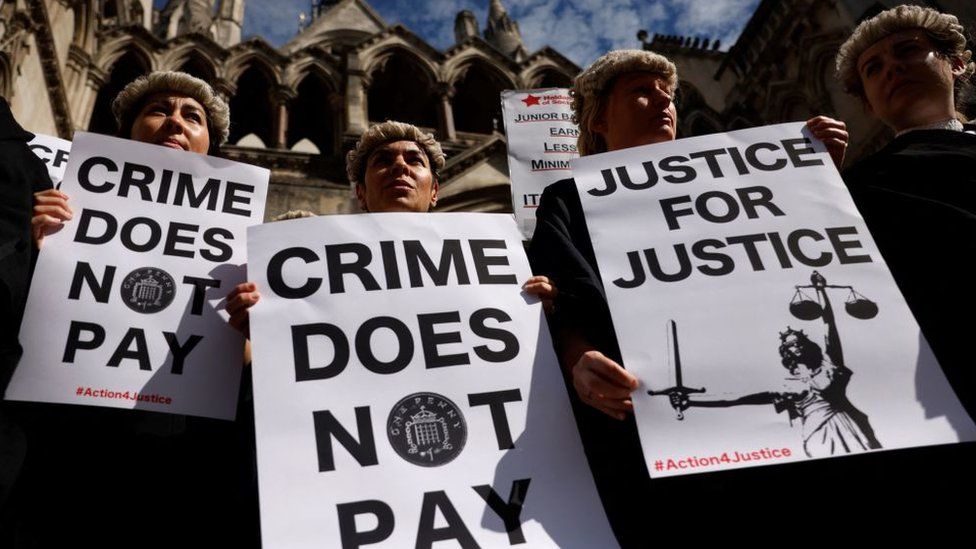

Judges across England and Wales are to prioritise the longest-delayed rape cases in an bid to end the anguish of victims in a backlogs limbo.
The unprecedented move to surge resources into the oldest rape cases is an attempt by the judiciary to crack some of the worst court delays.
Under the plan, 181 trials waiting more than two years to finish will go ahead by the end of July.
Lord Justice Edis, the judge in charge, said victims faced unacceptable delays.
As of January there were 3,355 rape cases awaiting trial in England and Wales, with an average wait time for defendants on bail of 358 days.
Those delays have been caused by a combination of the pandemic, government cuts before it and a strike by barristers over pay.
In practice, the average wait time for rape trials is far longer for some defendants and victims – and 6% of the cases have been in the list since December 2021.
Lord Justice Edis, who co-ordinates the Crown Courts, said those 181 cases would now be prioritised to go before a jury by the end of July to end a “significant injustice” for both defendants and complainants.
That means that in many courts other trials will have to be rescheduled – but the senior judge said the strategy would help to cut delays overall.
“This is an unacceptable state of affairs from the point of view of the complainants, the witnesses, the defendants and justice generally,” said the senior judge.
“It’s a small proportion of the total number of rape cases that we have to deal with that end up getting this old but nevertheless, it’s a significant injustice.
“The system has recovered its capacity. We are now in a position to make some choices, we are not in a hand-to-mouth crisis now.”

The 181 affected cases have been delayed because of factors including problems retrieving evidence from mobile phones, retrials and, in some cases, a lack of barristers and judges.
Two of the 181 cases may never be completed amid suspicions that one defendant could have gone on the run and another might have died abroad.
Once the cases are cleared, the plan is to repeat the exercise with the next oldest cohort of rape cases, further pushing down the average waiting time. The concept could be applied to other complicated long-delayed offences, such as fraud.
The plan comes weeks after the Criminal Bar Association said that six out of 10 barristers who conducted rape and sexual violence cases could walk away from the work because of poor pay and high stress.
Tana Adkin KC, chair of the CBA, said: “We support initiatives like this that turn the spotlight on to the delays crisis blighting our criminal justice system.
“We simply do not have enough specialist counsel left to prosecute and defend these important cases. If the government is serious about prioritising rape cases then it needs to urgently invest in the dedicated workforce who are specially trained in this work.”
Lord Justice Edis said: “Our system requires a substantial supply of skilled and experienced advocates in all our offence categories, but nowhere more than in rape and other serious sexual offences.
“They are a very valuable asset and it’s disappointing to read that survey, but I hope that that survey can be the start of efforts to put the situation right, because we can’t run the system without advocates.” – bbc.com